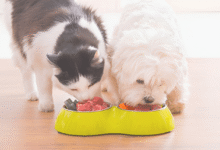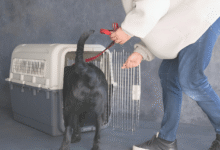
Common Household Items That Are Toxic to Pets
Common household items that are toxic to pets can be deadly Learn which foods plants & chemicals to avoid to keep your pets safe.
Many common household items that are toxic to pets lurk in our homes, posing serious risks to our furry companions. From everyday foods to cleaning supplies, numerous seemingly harmless objects can cause severe illness or even prove fatal to dogs, cats, and other pets. As responsible pet owners, it’s crucial to recognize these hidden dangers and take preventive measures to ensure our animals remain safe. This guide highlights the most hazardous household items, their effects on pets, and how to create a pet-friendly environment.
Our pets rely on us to protect them, yet many owners are unaware of the toxic threats in their kitchens, bathrooms, and gardens. Even small amounts of certain substances like chocolate, essential oils, or certain plants can trigger life-threatening reactions in animals. By understanding which common household items are toxic to pets, you can take proactive steps to eliminate risks and respond quickly in emergencies. Awareness and prevention are key to keeping your beloved pets healthy and out of harm’s way.
Common Household Items That Are Toxic to Pets
Chocolate and Caffeinated Products
Chocolate contains theobromine and caffeine, both of which are highly toxic to pets. Dogs and cats cannot metabolize these compounds efficiently, leading to Vomiting and diarrhea (early signs of poisoning). Increased heart rate, tremors, and seizures (in severe cases). Potential death if large amounts are consumed (dark chocolate and baking chocolate are the most Household Items).
Grapes Raisins Onions and Garlic
These common foods can cause severe internal damage Grapes & raisins Even small amounts may cause acute kidney failure in dogs, with symptoms like vomiting, lethargy, and decreased urine production. Onions & garlic (including powdered forms) Contain sulfoxides and disulfides, which destroy red blood cells, leading to hemolytic anemia. Symptoms include weakness, pale gums, and rapid breathing.
Xylitol Alcohol and Other Hidden Dangers
Xylitol (found in sugar-free gum, candy, and some peanut butters) Causes a dangerous insulin spike in dogs, leading to hypoglycemia (low blood sugar), seizures, and liver failure within Household Items. Alcohol Even small amounts can cause intoxication, respiratory depression, coma, or death because pets metabolize it much slower than humans. Avocados (for birds/rodents) & macadamia nuts Avocados contain Persin, which is toxic to birds and small pets, while macadamia nuts cause muscle weakness, tremors, and hyperthermia in dogs.
Household Plants and Flowers
Highly Toxic Plants That Can Be Fatal
Certain common plants pose life-threatening risks to pets Lilies (all parts, including pollen) Extremely dangerous for cats, causing acute kidney failure within 72 hours of Household Items. Sago palms Contain cycasin, which leads to severe liver damage, vomiting, seizures, and death in dogs. Oleander & Azaleas Even small amounts can cause heart abnormalities, tremors, and fatal cardiac arrest. Immediate Action Required: If your pet chews on these plants, rush to the vet delayed treatment can be deadly.
Common Houseplants That Cause Painful Reactions
Many popular indoor plants trigger painful, but usually non-fatal symptoms Pothos & Philodendrons Contain calcium oxalate crystals, causing mouth swelling, Household Items, and vomiting. Aloe Vera While medicinal for humans, the saponins irritate pets’ stomachs, leading to diarrhea and lethargy. Daffodils & Tulips Bulbs are most toxic, causing intense stomach pain, drooling, and heart irregularities. Pet-Safe Alternatives: Swap dangerous plants for spider plants, Boston ferns, or African violets to keep your home both green and pet-friendly.
Cleaning Products and Chemicals
Household cleaners, including bleach, detergents, and disinfectants, can be lethal to pets if ingested or inhaled. Many contain corrosive ingredients that burn the mouth, throat, and stomach. Even residue left on floors or countertops can harm pets that walk on treated surfaces and then lick their paws. Antifreeze (ethylene glycol) is especially dangerous due to its sweet taste just a teaspoon can cause fatal kidney failure in cats and dogs. Pesticides, rodenticides, and Household Items are also major hazards. Rat poison, for example, contains anticoagulants that lead to internal bleeding, while snail bait (metaldehyde) causes seizures and tremors.
Medications and Personal Care Products
Human medications, both prescription and over the counter, are a leading cause of pet poisoning. Pain relievers like ibuprofen and acetaminophen can cause stomach ulcers, kidney failure, and liver damage in pets. Antidepressants, ADHD medications, and sleep aids often lead to neurological symptoms such as tremors, seizures, and Household Items. Even seemingly harmless supplements, such as vitamin D or iron tablets, can be toxic in high doses. Pets may also be exposed to harmful substances through personal care products like lotions, essential oils (especially tea tree oil), and nicotine (from cigarettes or vaping liquids).
Household Objects and Miscellaneous Hazards
Beyond food and chemicals, everyday objects can also endanger pets. Small items like batteries (which can leak corrosive acids), coins (containing zinc), and rubber bands (causing intestinal blockages) should be kept out of reach. Electrical cords pose a risk of electrocution if chewed, while sharp objects like needles or broken glass can cause internal Household Items. Certain fabrics, such as those treated with fire retardants, may also be harmful if ingested. Holiday decorations, including tinsel, ornaments, and artificial snow, can lead to choking or digestive obstructions.
What to Do If Your Pet Is Poisoned
If you suspect your pet has ingested a toxic substance, act quickly. Look for symptoms such as vomiting, drooling, lethargy, seizures, or difficulty breathing. Contact your veterinarian or an emergency pet poison hotline immediately. Do not induce vomiting unless instructed, as some toxins can cause more harm if regurgitated. Bring any packaging or remnants of the ingested substance to the vet for identification. Early intervention can save your pet’s life, so never delay seeking help. Keeping a pet first-aid kit with activated charcoal and hydrogen peroxide can be helpful in Household Items.
Read More: Celebrating Holidays with Your Pet Safety and Fun Ideas
Conclusion
Being aware of common household items that are toxic to pets is one of the most important responsibilities of pet ownership. From foods like chocolate and grapes to cleaning products and certain plants, these everyday hazards can pose serious risks to our furry friends. By pet-proofing your home, storing dangerous items securely, and educating yourself about potential toxins, you can create a safer environment for your beloved companions. Prevention is always better than treatment, and a little vigilance goes a long way in keeping pets out of harm’s way.
If an accident does occur, quick action can make all the difference. Familiarize yourself with the symptoms of poisoning and keep emergency vet contacts handy. Remember that even small amounts of certain common household items that are toxic to pets can be dangerous, so never hesitate to seek professional help. By staying informed and proactive, you can ensure your pets enjoy a happy, healthy life free from preventable dangers. Your awareness today could save your pet’s life tomorrow.
FAQs
What foods are most toxic to dogs?
Chocolate, grapes, xylitol, onions, and alcohol are among the most dangerous foods for dogs, causing symptoms ranging from vomiting to organ failure.
Are lilies really that dangerous for cats?
Yes, lilies (even small amounts) can cause severe kidney failure in cats and should be kept out of homes with feline pets.
How can I make my home safer for pets?
Store chemicals securely, avoid toxic plants, keep human medications out of reach, and pet-proof small objects that could be swallowed.
What should I do if my pet ingests something toxic?
Contact your vet or a pet poison hotline immediately, and do not induce vomiting unless instructed by a professional.
Are there pet-safe alternatives to household cleaners?
Yes, vinegar, baking soda, and enzyme-based cleaners are effective and non-toxic options for pet-friendly homes.







